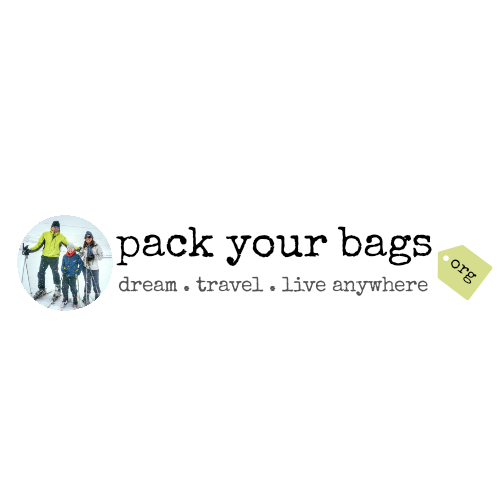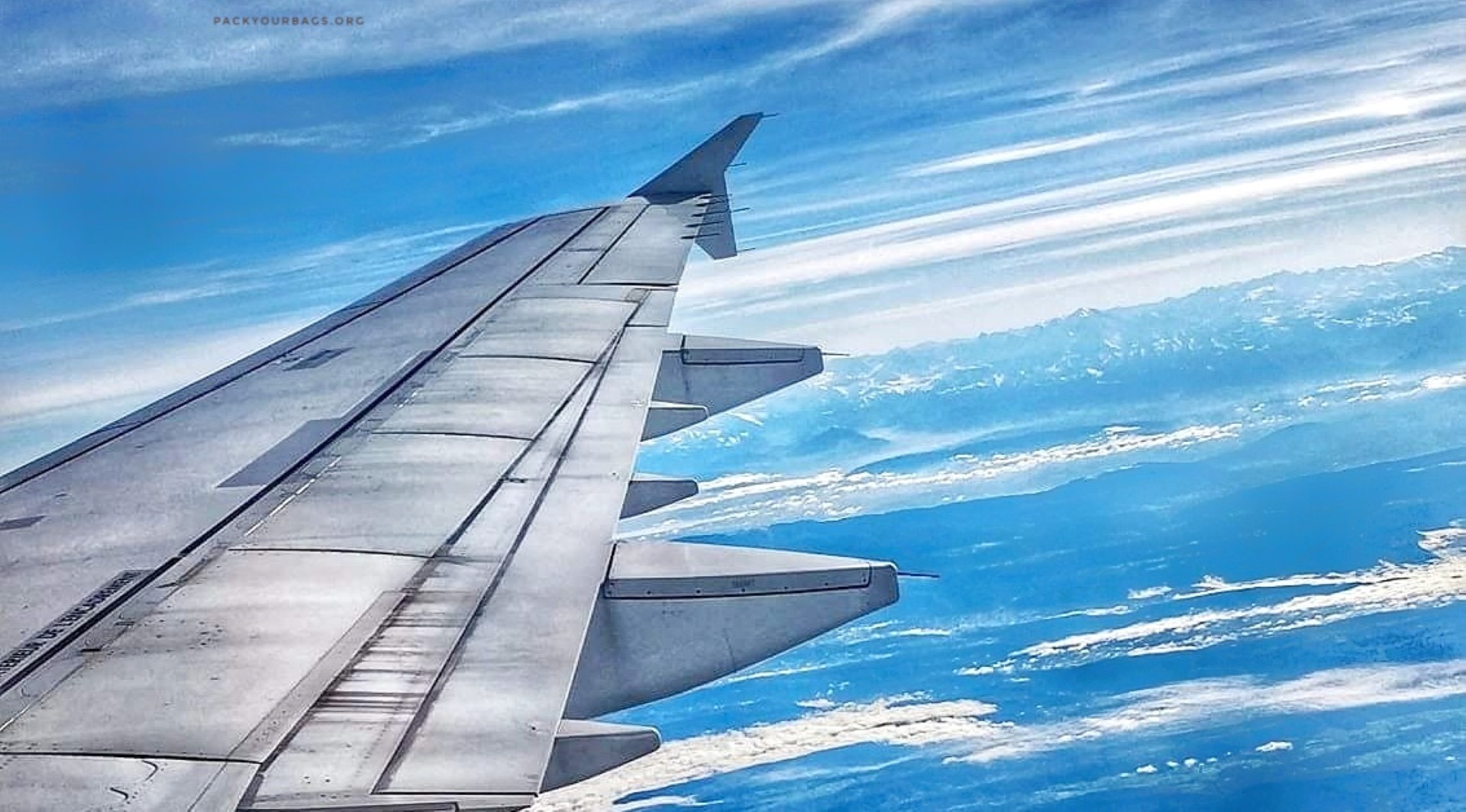I don’t know about you but jet lag is the worst thing about traveling for me. The older I get the longer it lasts. When I was a kid, sure, my sleep would be affected for a day or two and after that I’d be back to normal. My young son is that way as well. One day is all he needs to recover. And my husband does not struggle with jet lag as much as I have been, especially in the last few years.
We travel a lot and sometimes I travel on my own. Jet lag has been a huge nuisance for me, especially when I travel for work. Being jet lagged is not something I want when attending a conference or meeting with clients. But also when traveling for fun, who wants to walk around like a zombie and be grumpy when you are supposed to be enjoying your amazing holiday?
In the end, I got fed up with suffering from jet lag which for me sometimes lasted for up to two weeks. Recently I looked at our fall travel schedule and it truly scared me in terms of how we were going to survive changing continents several times in a space of two months. That’s when I decided to research what was out there. And I found something that made scientific sense to me. So I tested in on myself on my recent trip from Europe to Canada and back two weeks later. I have to say, it worked for me like a charm with zero down time on the ground. So let me tell you how I did it.
How to Beat Jet Lag with Fasting
Before I begin, let me just say, that before you do this, you should ask your doctor if this is something you can do. You should be completely healthy. Even though this method is 100% natural, it is not for everyone.
So what is this miracle jet lag prevention? Well, you may have heard about this in the news in the last few years or so. The miracle jet lag prevention tool is fasting. When I did my research, I found many different ways to do it. However, because I have fasted on my own before for reasons other than jet lag prevention, I knew that I could handle fasting and that I enjoyed how I felt physically and mentally afterwards. If you have never fasted but wish to use it as a jet lag prevention, do it first at home when you’re not traveling. And slowly build up to the adequate time.
How I Fasted to Prevent Jet Lag
Let me tell you how I fasted on a recent trip. Here are the steps I took as I was preparing for my series of flights from Canada to Europe:
- I asked myself: What time do I normally eat breakfast? That time for me is around 7:30 AM.

- I then set my alarm to 7:30 AM in France on the day I was to land there. I calculated that I would still be in the air over the Atlantic when it was breakfast time in Europe. Therefore I set my alarm to 7:30 AM French time (even though it was the middle of the night for me in Canada). I had my breakfast ready waiting to be eaten when that alarm went off.

- Here’s the hard part. For 12 to 16 hours before breakfast time in the time zone you are traveling to, you are to fast. But fasting doesn’t have to be drastic. You don’t starve yourself. Definitely hydrate. Nothing is more dehydrating than air travel. I like to drink water, juices, especially tomato juice when traveling. At all costs, avoid alcohol and caffeine. Alcohol will make you hungry. Caffeine will not help you to reset your circadian rhythm to the new time zone.

- Good news – you can eat a little bit. Eat a handful of nuts, maybe some dry fruit, something small if hunger strikes so badly you might cause a scene on the plane. When I fast, I allow myself to consume up to 400 calories in nuts or dried fruit throughout the entire fasting period. No sandwiches, no candy, no junk food, no meals of any kind. The mental effect of allowing yourself this small amount of calories is great. Completely forbidding myself to eat would not let me survive the fast.

- The minute that alarm goes off announcing it’s breakfast time at your destination, have your breakfast immediately. Have a coffee with it if that’s what you normally do at breakfast. Warning – don’t eat a large breakfast after fasting. Your digestive system has slowed down, so go easy on it. I can’t stress enough, you should have this breakfast handy. Don’t wait for flight attendants till they walk around with food. Your breakfast time might be between meals and you should break your fast exactly at your breakfast time. When my alarm sounded, it was 2:30 AM in Halifax, Canada, but it was 7:30 AM in France and I needed to eat that breakfast then and there, even though I was sleeping at the time and my body was not thinking about food.

My Results from Fasting to Prevent Jet Lag
I fasted en route from Europe to Canada and then two weeks later from Canada back to Europe. On the way to Canada, I did it less than the minimum recommended time. So instead of 12 -16 hours of fasting, I fasted for ten hours. Results? It still worked like a charm. Upon my arrival in Calgary, once it was time to go to bed, I slept for 12 hours, with one bathroom break in the middle of the night.
After my first night, I was back to my usual eight hours per night. I did not feel tired during the day. In fact, I would say, I was more alert than usual. In my experience with fasting, I am always very alert post fast. On the way back to Europe, I fasted the recommended minimum of 12 hours. Whenever I fly east, I find my jet lag period lasts longer. So I wanted to ensure that I followed the rules to the T. And it worked again. It’s as if I had never been in a different time zone the day before.
So how does fasting work?
It basically resets your circadian rhythm. How? The fasting before breakfast corresponds to the time you would normally not eat after dinner followed by a night of sleep. The fasting before destination breakfast fools your body and brain into thinking you’re on track. Fasting also makes me drowsy, which is perfect for falling asleep during travel, making your body think it’s night time. There’s nothing or little to digest for the 12 hours or more so your body won’t wake you up to go to empty your bowels at your “old” time zone. This has worked so well for me, that I plan on implementing fasting from now on as part of all my long haul travel that changes time zones drastically.

Factors to Consider When Planning Your Fast to Prevent Jet Lag
- It’s easier to fast when you are flying from east to west. At least that was my experience. Why? Because as I like to say, you “gain time” flying west. For example, when I left Europe on the 10th of September, I still landed on the 10th of September even though it was already the next day in Europe. This helps with fasting. You can begin your fast the night before you go to bed and then set your alarm for breakfast time in North America, which will be lunch time in Europe. So basically, it’s as if you had skipped breakfast. That’s it. You basically sleep through most of your fast.
- You will be tired the first day when you land. No matter what, I don’t take a nap during the day or go to bed too early when I land at my destination. When at home, I usually go to bed between 10 PM and midnight. On my first night on arrival each way after fasting, I went to bed at 9 PM each time and I slept like a log for ten and 12 hours. After my first night, I was back to normal. So how to make it through the day so you don’t fall asleep? Unpack, take a shower, do laundry, talk to your family, play with your dog, go for a walk. Just be busy. Don’t lay on the couch and watch a movie. Being lazy would be guaranteed to put me to sleep when I am exhausted.
Fasting has been the only thing to completely prevent my jet lag. I have tried numerous other things before that alleviated my jet lag once I was already suffering from it. But as they saying goes, an ounce of prevention is worth a pound of cure. Be aware that fasting is not for everyone. I am not a doctor, so what I am writing here has been based solely only my personal experience. If you do wish to try it, do so at your own risk. Consult your doctor to make sure you are healthy enough to do it.
Happy travels!
Pin It!



10 comments
This is clever. I think I’ll give it a try!
Thanks! It really worked for me. Now my husband will try it on our next trip.
You’re right. The older you get the longer jet lag lasts. After reading your post, I have to say that fasting is not the right choice for me. I’m a kind of person who will be miserable when I don’t eat on time. I mean, I will have a severe headache, pain around the back of my neck and shoulders, and eventually get sick which then will lasts all day. So, I think I just leave with jet lag. 🙂
I understand – fasting is definitely not for everyone. People with certain medical conditions cannot do this. Definitely I recommend talking to a doctor first before trying.
I had never heard about fasting to prevent and help with jet lag, but that actually seems to be a brilliant idea! I always kind of try to adjust my sleep schedule to my destinations beforehand but that never really helped. Adjusting the meal time and fasting seems more efficient, I have a trip to Asia in January I will definitely give it a try!
Awesome! I’d love to know how it works out for you.
I have never heard of this for beating jet lag! It’s a really interesting idea. Jet lag is the worst so I’m willing to try anything to beat it.
I honestly have nothing but good things to say about fasting to prevent jet lag. Again, I will stress, make sure you are healthy enough to try it.
A really interesting post- we have never tried this but it may be worth giving a try on our next long haul flight 💗
Cool – let me know how it works out for you guys!